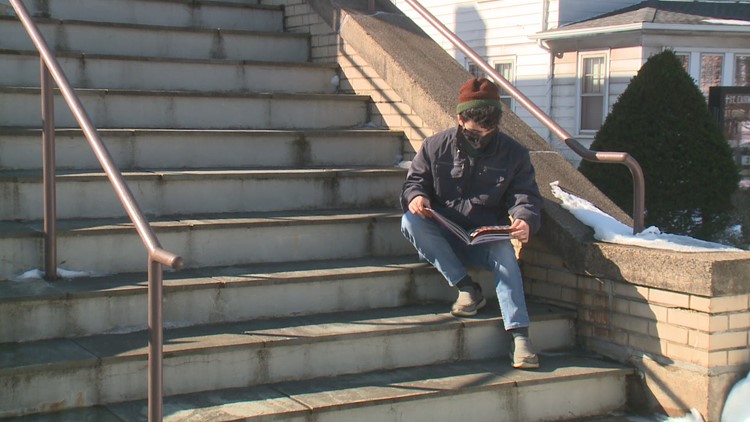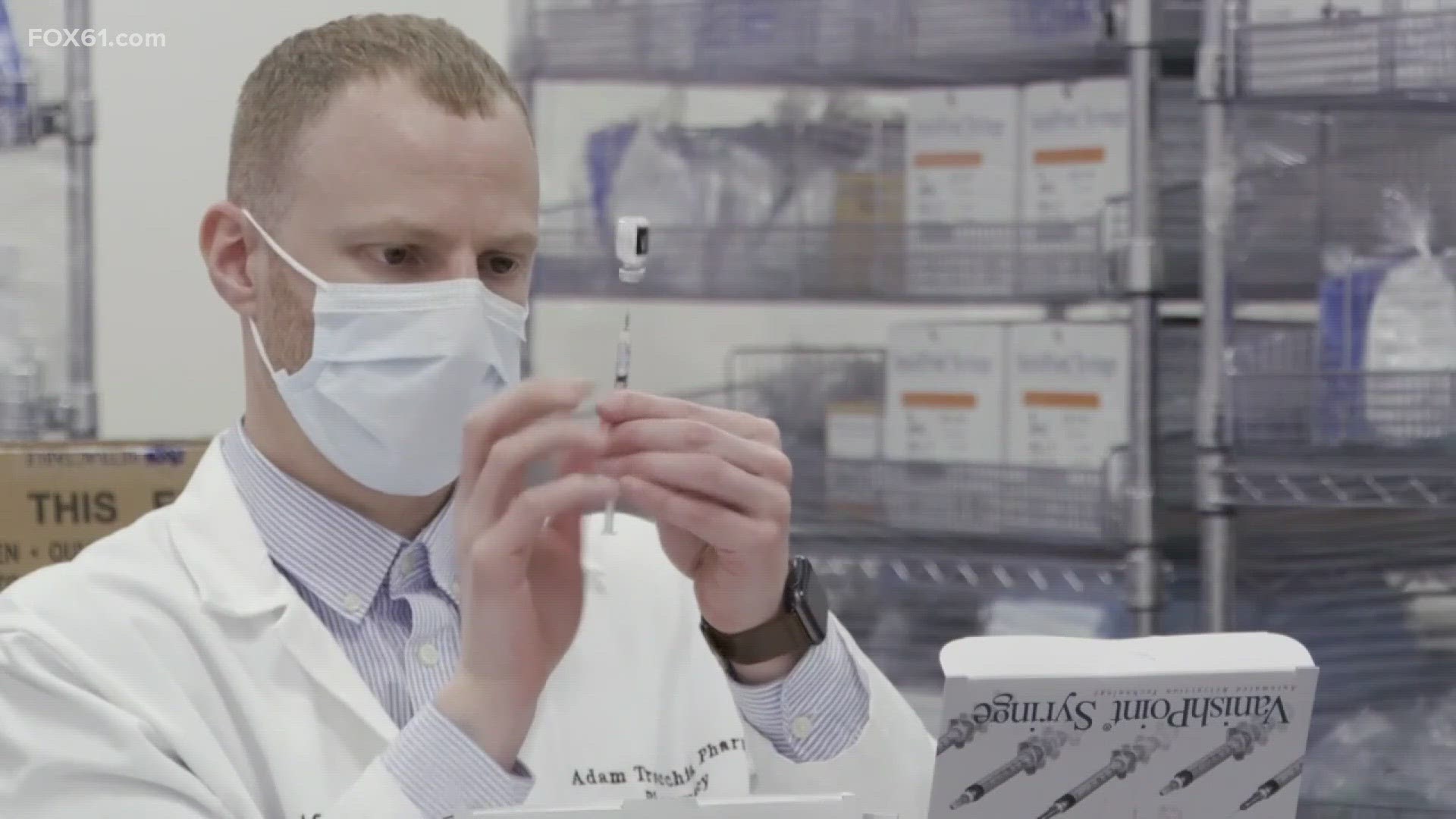CONNECTICUT, USA — As the pandemic drags on month after month, doctors say children and teens are feeling the impacts on their mental health.
"I look at a lot of my classmates and I think to myself, 'Who's going to be next to have a breakdown?' You show up to the online meets and you see 20 kids in bed, barely awake, none of them smiling. You see people going through the whole class without saying a word, and you just wonder, 'What are those people going through?'" said Peter Borzillo, a senior at Mark T. Sheehan High School in Wallingford.
According to a 2021 report from Mental Health America, "Young people are struggling most with their mental health. The proportion of youth ages 11-17 who accessed screening was 9 percent higher than the average in 2019. Not only are the number of youth searching for help with their mental health increasing, but throughout the COVID-19 pandemic youth ages 11-17 have been more likely than any other age group to score for moderate to severe symptoms of anxiety and depression."
"We haven't actually seen an increase in patients, but the patients are staying with us longer because the resources in the community for us to send them home or send them to in-patient just aren't there," said Steven Rogers, MD, Director of Emergency Behavioral Health Services at Connecticut Children's. "We continue to see kids with behavioral health problems, things like anxiety, depression, thoughts of suicide and self-harm."
Dr. Rogers also said children are hitting a "deeper point of crisis" during the pandemic.
"We actually provide universal suicide screening for all of our patients over the age of 10 and over the past three months, we've seen a change in the number of patients who are thinking about suicide," said Dr. Rogers.
For most of last year, Dr. Rogers said the positive rate of kids thinking about suicide was around 16 percent. In October, that number went up to 19 percent. In November, the number went up again to 24 percent. The number did drop to around 21 percent in December, but Dr. Rogers notes this is still a big increase.
"What folks said is that what they were unprepared for is that kids that were on nobody's radar, and loads of kids, are significantly depressed," said Faith Vos Winkel, the state assistant child advocate.
Education leaders tell FOX61 mental health is being prioritized in schools.
"We have done whatever we can at the schools to make sure social workers, guidance counselors, psychologists are part and parcel of remote learning," said Fran Rabinowitz, Executive Director of the Connecticut Association of Public School Superintendents.
"We've certainly had webinars on everything about remote learning and things like that, but more specifically how schools can support kids emotionally, so we're talking about social emotional learning, mental health support, behavioral support, things like that. How they can effectively engage families, that's a big part of it," said John Frassinelli of the Connecticut State Department of Education's Bureau of Health, Nutrition, Family Services and Adult Education.
Officials also point to federal funding and state legislation as tools to help fight the mental health crisis, and leaders also stress that equity must play a part in the conversations as well.
"What we know is that we have populations of our students who are not benefitting from the education efforts that are being put forward as greatly as other students," said Ann Smith, the Executive Director of AFCAMP Advocacy for Children.
As the conversation surrounding how to best support children and teens continues, experts advise facing the tough conversations head-on.
"Parents need to talk to their kids, just take some time and they need to ask direct questions. How are you feeling? Are you feeling sad? Are you feeling depressed? Do you have thoughts of suicide?" said Dr. Rogers.
"We can't just look at the schools and say the schools have to do this. We can't just look at the families and say families need to do this. You know, it has to be a collective endeavor," said Vos Winkel.
Connecticut Children’s is also partnering with organizations across the state to explore innovative new ways to support children with behavioral health crises, which may become the next pandemic.
Mental Health America ranked Connecticut 17th out of all 50 states when it comes to youth mental health.
States at the top of the list have lower prevalence of mental illness and higher rates of access to care.
Families can access the following resources if you suspect your child is struggling with mental health issues:
- Emergency Dial 9-1-1
- Support in CT Dial 2-1-1
- http://www.preventsuicidect.org
- http://www.Gizmo4mentalhealth.org
- https://suicidepreventionlifeline.org
- https://www.crisistextline.org is free, 24/7 support for those in crisis
- Text CT to 741741 from anywhere in the USA to text with a trained crisis counselor
- https://www.connecticutchildrens.org/category/behavioral-health/
The East Hartford Youth Services Department and East Hartford Health Department are also hosting weekly educational support sessions related to the COVID-19 pandemic.
The sessions run on Wednesdays, 12:30 to 1:30 PM, through Zoom.
The sessions will be facilitated by staff from the East Hartford Youth Services and East Hartford Health departments.
According to the Town of East Hartford, the support group is a space for individuals to get mental health resources and support as well as public health information regarding COVID.
Resources include peer support regarding feelings of isolation and loneliness, grief and loss support, tips on stress reduction, and tips on helping members maintain relationships and connection to others and their community. There will also be educational information such as how to help prevent the spread of COVID, symptoms of COVID, dealing with a diagnosis, testing locations, and information related to COVID vaccination, and more.
People interested can join and register by visiting https://bit.ly/3pjd4kn.
For more information, people can call the East Hartford Youth Services Department at 860-291-7179.



